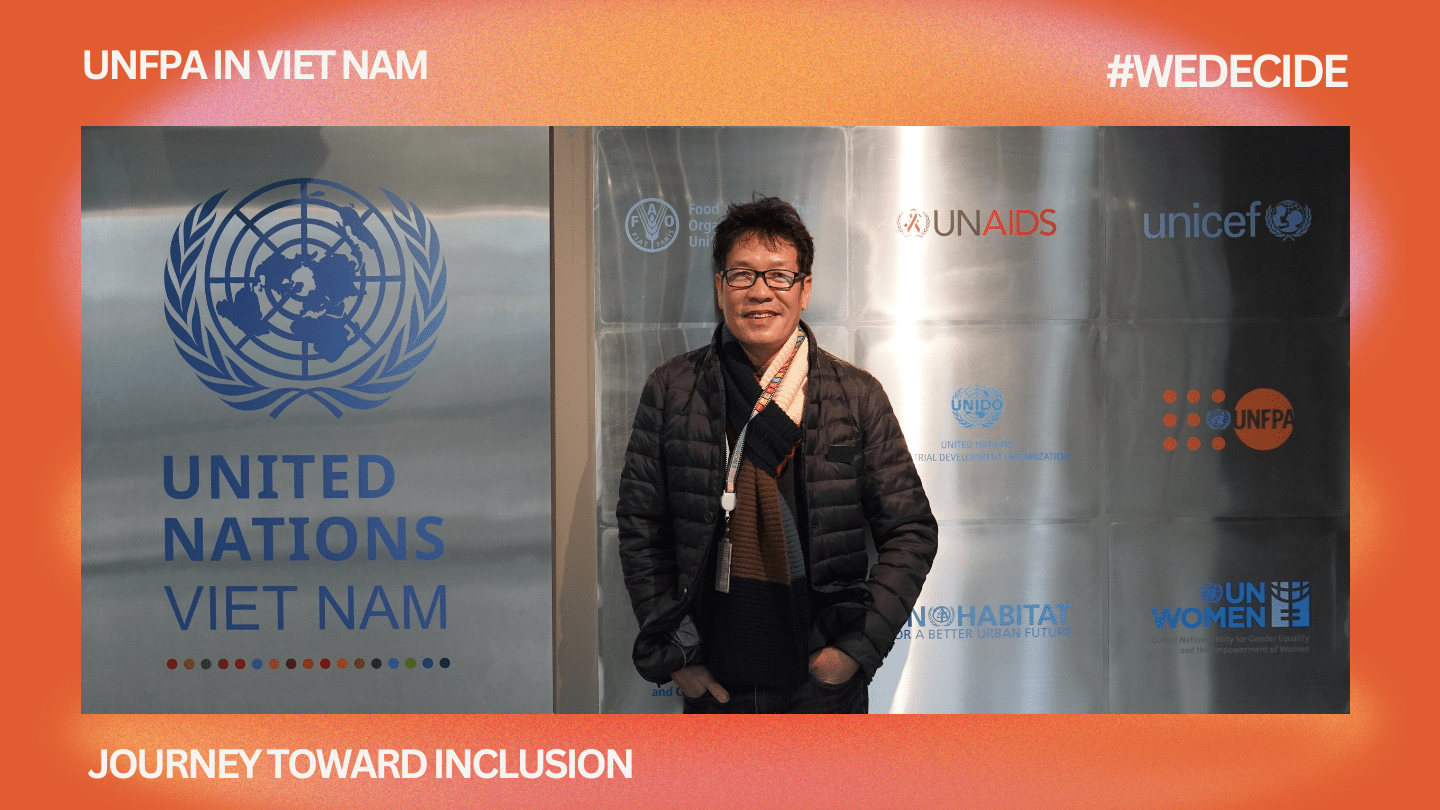If you met Mr. Trần Quốc Nam today—a confident social activist, Chairman of the Disabled People’s Association of Sơn Tây Town, and Standing Member of the Hanoi Disabled People’s Association—you would hardly imagine that his entire journey began with a childhood fever.
“I was just one year old,” he recalls. “A viral fever left one of my legs atrophied and contracted. I could still walk, but that leg never stood straight again.”
And yet, Mr. Nam never let this define his path.
Born into a family with a deep tradition of learning in the heart of the capital, he was raised like any other child. “My parents never told me I was different,” he shares. “They gave me a full, wholesome childhood—allowed me to dream, to grow, and to reach for the stars. That was more than enough.”
It wasn’t until attending a community event for Viet Nam’s Day of Persons with Disabilities that he felt connected to his community for the first time. “There were people with far more severe disabilities who were completely integrated into society,” he remembers. “And then there were those with milder impairments who were still silent, hiding. That day changed me. It showed me that disability is not just in the body, but in the barriers society places around us.”
From that moment, he made a promise—not only to break down physical obstacles, but to dismantle social and systemic ones, too.
A Life of Purpose and Leadership
After establishing the Disabled People’s Association of Sơn Tây—one of the first local chapters after Hanoi’s administrative expansion—Mr. Nam began to build a support network rooted in practicality and compassion. He started with something small.
“I started with a chicken-raising project,” he laughs. “Twenty chickens, a few persons with disabilities, and one goal: self-sufficiency.” Sponsored by international partners, it became the first livelihood project for persons with disabilities recognized in Hanoi. “It wasn’t just about chickens. It was proof that people with disabilities can create value. We don’t need pity—we need opportunity.”
He recalls his early collaborations with NGOs. “Many organizations hesitated to let disabled people make decisions. But without agency, how can you claim to empower?”
Over time, his roles multiplied—mentor, advocate, facilitator, trainer, policy voice, and community connector. From supporting hospitals to improve inclusive care to receiving training in disaster preparedness, Mr. Nam kept pushing boundaries.
But most of all, he never stopped listening.
Stories That Stay
Asked what keeps him going, his eyes soften.
“It’s human kindness,” he says. “I still remember our handicraft project teaching people how to make traditional brooms. Later, the Ministry of Agriculture and local schools signed a commitment to buy the products. A simple gesture, yes—but full of dignity and meaning.”
He also recounts the story of young Huy—the subject of his entry in the Loving Lenses photovoice contest organized by UNFPA for the International Day of Persons with Disabilities. “Huy, a boy with a physical disability, just wanted to learn like the other children in his village. And because of patient, empathetic peers like Thuy Chi and Đạt—just a grade above him—he did. Sometimes, all it takes is one person who believes in you, who listens. That’s how lives change.”
The images show Huy, joyful and focused, clutching a pen, writing dreams that now seem within reach.
Facing Invisible Barriers
Mr. Nam doesn’t shy away from hard truths. “Many families still feel ashamed of having a child with a disability—especially intellectual ones. Some even hide their children away, not letting them go to school.”
Worse, he says, is the misplaced compassion that can suppress progress. “Too much pity can kill someone’s will to rise.”
He strongly opposes the “victimization” of people with disabilities. “We don’t need charity. We need respect, dignity, and equal access.”
He lists structural barriers: inaccessible public transport, lack of braille signage, legal gaps. “Some laws seem perfect on paper. But look closer—they marginalize us further.”
An Empathetic Lens for Change
What sets Mr. Nam apart is his perspective. “I always ask: If I were in their shoes, what would I need?” His training, experiences, and deep understanding of local identities and cultures shape his advocacy.
“Real change comes from deep listening,” he says. “Like how UNFPA’s photo contest gave us the space to tell our stories—on our terms. Real partnership means real empathy.”
As our conversation ends, he reflects on what still drives him:
“My greatest hope is that young people with disabilities never doubt their worth. They are full of potential.”
Asked for his final message to UNFPA and society, Mr. Nam smiles gently.
“Believe in us. Work with us—for a world where persons with disabilities are equal, included, and never left behind.”
And then, Mr. Nam walks away. Still with that tilted gait—but unwavering, purposeful, and full of resolve.
####
About UNFPA's mission:
UNFPA – the United Nations Population Fund – is the UN agency focused on sexual and reproductive health. Our mission is to deliver a world where every pregnancy is wanted, every childbirth is safe, and every young person’s potential is fulfilled.
About the UNFPA WeDecide programme:
WeDecide is a global initiative by UNFPA, supported by the Government of Spain, to promote human rights and social inclusion for women and youth with disabilities — especially in areas like sexual and reproductive health, and prevention of gender-based violence.
The program aims to create rights-based interventions aligned with international standards and guidelines, ensuring the direct participation of people with disabilities in the design and implementation process.It particularly focuses on women and girls with disabilities, who often face significant barriers in accessing health services, education, protection, and information.
Through WeDecide, UNFPA works to ensure everyone has the right to make decisions about their own bodies and lives — free from discrimination and violence.


